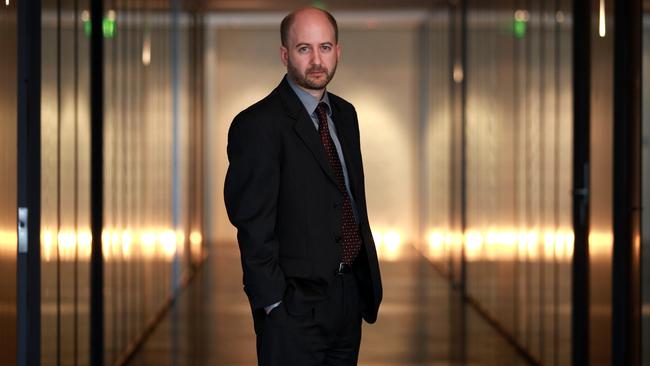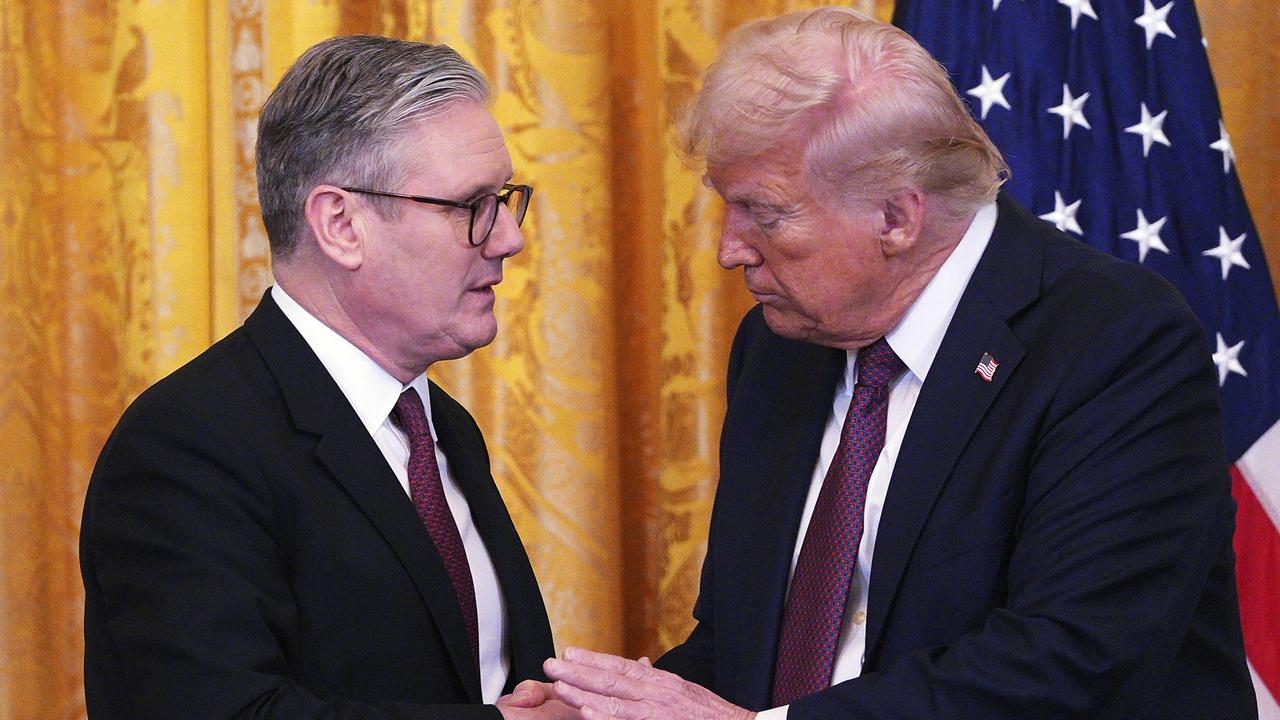Donald Trump’s tax cuts risk stagnation: Joseph Lupton
Donald Trump’s tax cuts risk fuelling stagflation, a top visiting US economist says.

President Donald Trump’s tax cuts risk fuelling stagflation amid growing fears imminent US tariffs on China could prompt a damaging global trade war, a top visiting US economist says.
Joseph Lupton, a senior economist in JPMorgan’s New York office, said he expected the Federal Reserve to lift its benchmark federal funds rate eight times over the next two years to keep a muzzle on inflation — more than double the increase currently priced into financial markets.
“Australia is going to have a bit of a problem in the rate-rising environment,” he told The Australian, suggesting the local currency might fall about US3c by the end of the year.
In Sydney to meet clients, Mr Lupton said swingeing US tax cuts that took effect this year would push up US growth by 1.25 percentage points over the next two years but were “imprudent”.
“We’ve never seen this type of stimulus so late in the economic cycle. With the unemployment rate very low there’s no reason this economy needs fiscal stimulus,” he said.
The US unemployment rate has fallen steadily to 4.1 per cent and the budget deficit is expected to rise to the equivalent of 5 per cent of GDP, double Australia’s, for instance.
Mr Lupton likened the current fiscal US conditions to the 1960s during the Vietnam War, when large budget deficits accompanied strong jobs growth.
“That was potentially setting the foundation for the stagflation of the 1970s, where you had rising wages, productivity growth slowing and price pressures were building,” he said.
“One of the disappointing features of the tax reform package was that it wasn’t reform, just a tax cut. Typically you want these to be revenue-neutral and bipartisan and this was neither of those.”
Mr Lupton said investors were nervously waiting to see whether President Trump would use powers under a 1974 Act permitting tariffs on nations that engaged in unfair trade practices.
President Trump has said he wants China to reduce its trade deficit with the US by $US100 billion. “The US is acting swiftly on Intellectual Property theft. We cannot allow this to happen as it has for many years!” the president tweeted earlier this month.
Experts widely acknowledge China impinges on foreign investors’ intellectual property, such as when China reportedly copied Japanese firm Kawasaki’s high-speed rail technology earlier this decade.
“By far single biggest thing investors are worried about is a trade war,” he added, contrasting the modest impact of President Trump’s initial tariffs on washing machines and steel. “Everyone’s drooling to get into the local market there but are risks for IP.”
Mr Lupton was optimistic about wage growth globally, which has repeatedly failed to accelerate despite falling unemployment in the major developed countries. “This year I think inflation will really surprise people,” he told The Australian, suggesting consumer price increases would continue to accelerate.
“Wages are still lagging the cycle more than we had thought but the direction is up. And it’s not just a US story,” he added.
German union IG Mettall recently negotiated a historic 3.5 per cent annual wage rise.
“The Philips curve has been flat for so long and it’s finally starting to steepen; that’s what central banks are looking at,” Mr Lupton said.




To join the conversation, please log in. Don't have an account? Register
Join the conversation, you are commenting as Logout